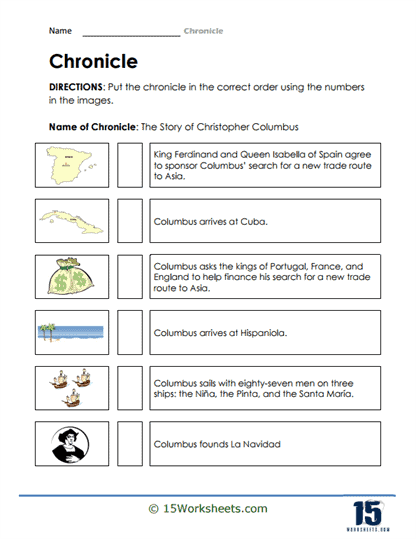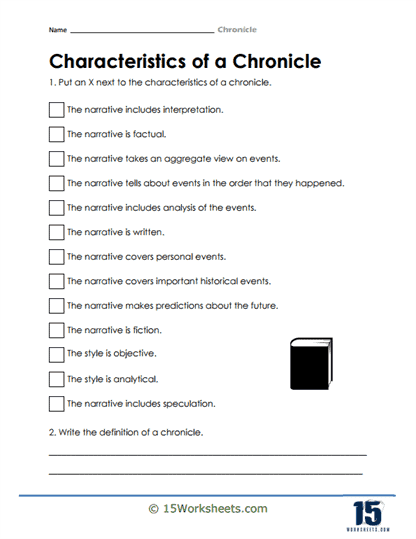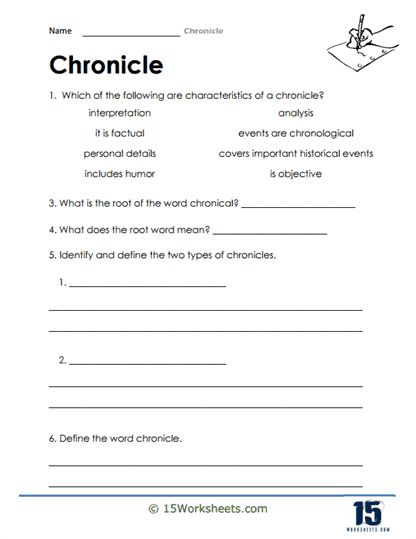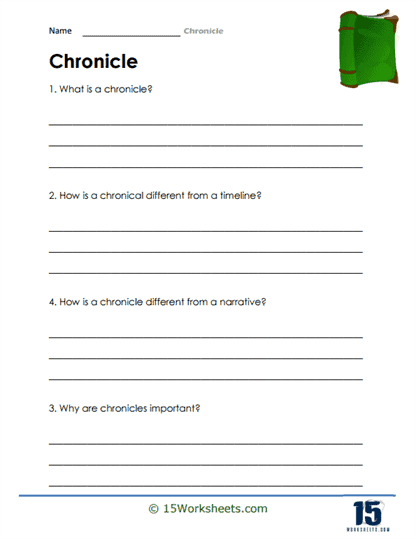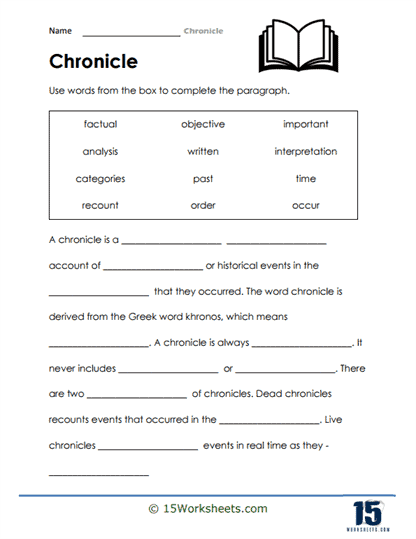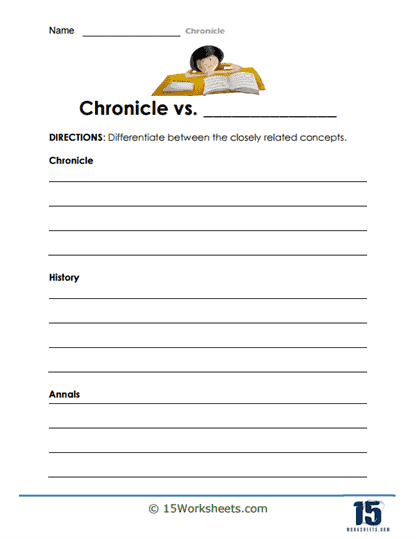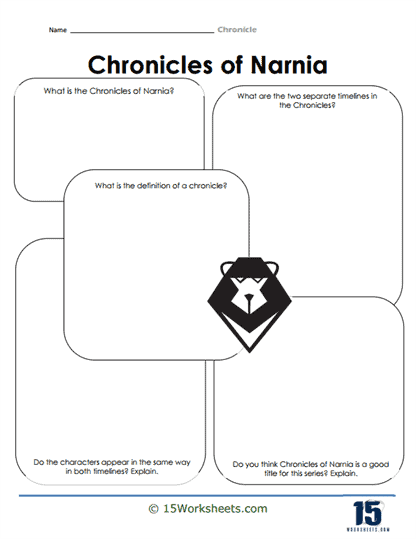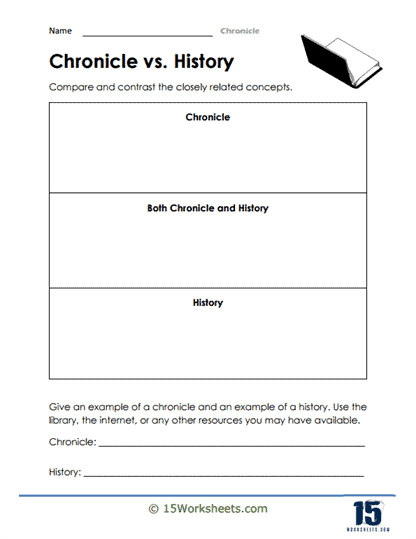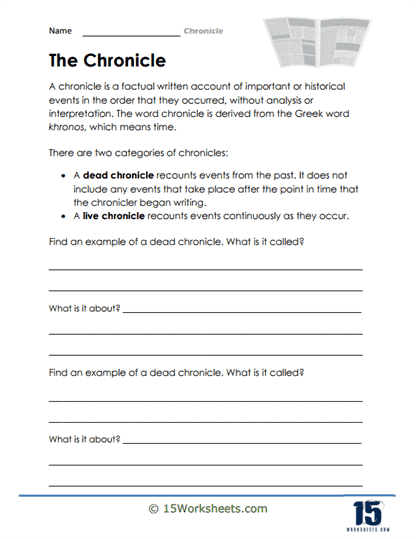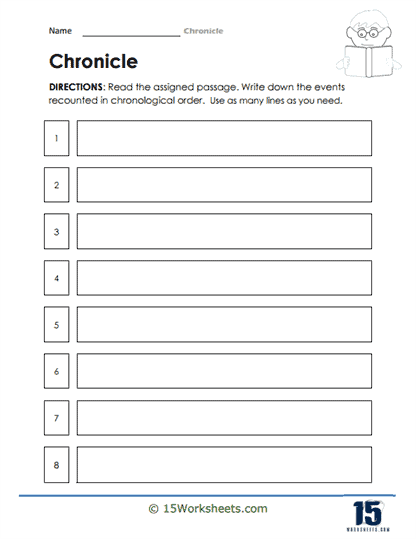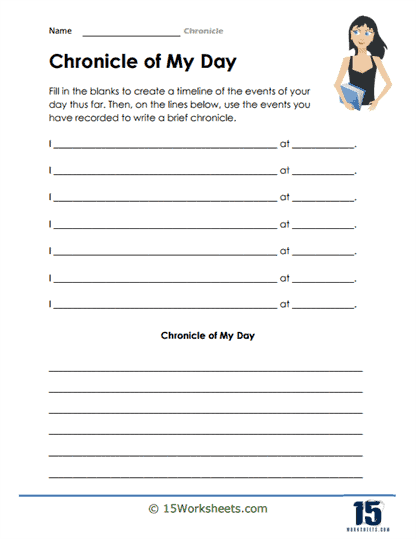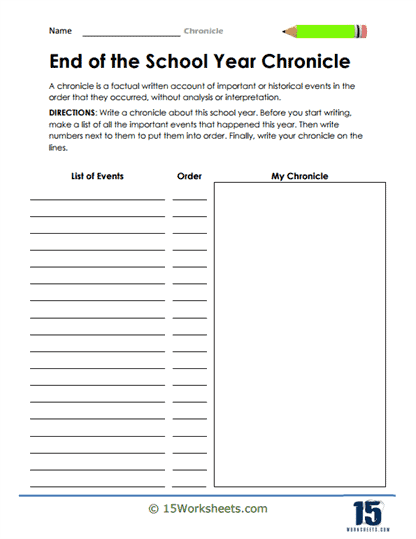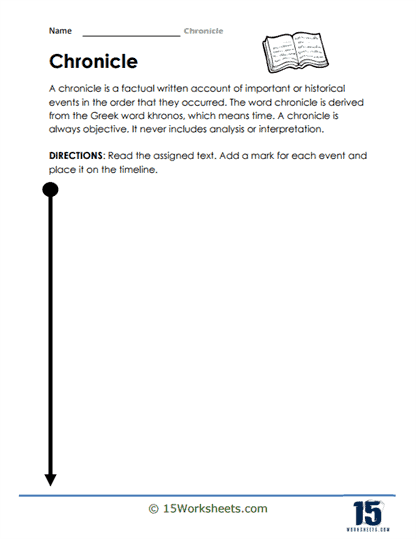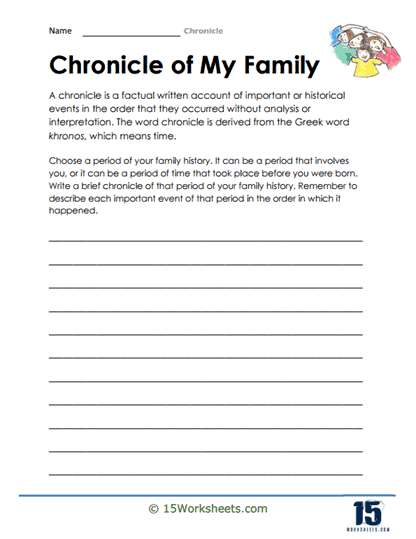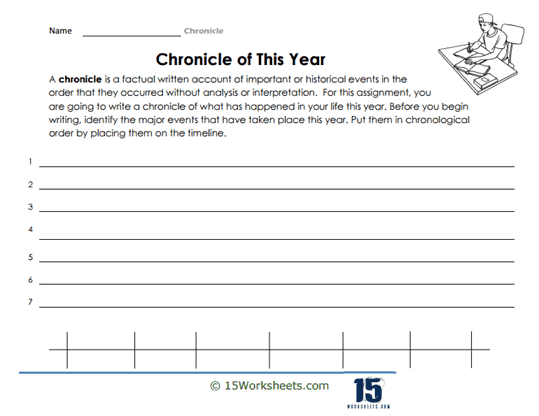Chronicle Worksheets
All About These 15 Worksheets
This collection of Chronicle worksheets are designed to help students understand the genre of chronicles, which are written accounts of important events that occur in sequential order. These worksheets include reading assigned passages from historical chronicles, along with questions and activities that encourage students to analyze and interpret the text.
By completing these worksheets, students learn to identify key events and characters, analyze the author’s writing style, and consider the historical context in which the chronicle was written. They are also encouraged to create their own chronicle, showing their clear understanding of what a chronicle is and its form. Through these worksheets, students will:
- Order the events of a chronicle by taking notes of its key events and their sequence;
- Learn what makes up a chronicle, its definition, and its roots;
- Distinguish a chronicle from a timeline, narrative, history, and annals;
- And improve their writing skills by developing their own chronicle, recounting from their own experiences.
By studying chronicles, students gain a deeper understanding of historical events and the people who shaped them. They also develop critical thinking and analytical skills that are valuable in many different areas of life, from academic research to personal decision-making.
The Meaning of Chronicles
The word chronicle comes from the Greek word ‘chronos,’ meaning time. A chronicle in literature is an account or a record of events in the exact order they occurred in time. Chroniclers describe the details of events as witnessed or understood by them. These events can be composed in the form of both prose and poetry. Moreover, they can either be real or imagined by the author.
Other Similar Genres
Some people confuse chronicles with similar writing styles in literature, like narratives and timelines. However, all of these writing styles are different from each other.
Narrative – Like chronicles, narratives also require the author to describe the events in detail. However, the events talked about in a narrative do not need to be in the exact sequence they occur. For example, a narrator may describe the story’s ending first and then explain the beginning.
Timeline – Like chronicles, a timeline also records events in a timely order. However, it doesn’t usually contain comprehensive details about the event. Only the basic information like the date and the core idea is included in a timeline.
Examples of Chronicles
A lot of excellent chronicles exist in the vast treasure of literature today. The most popular chronicles were produced around the times of the Middle Age and Renaissance.
If you want some recent examples, check out ‘Chronicles of Narnia.’ It is a popular fiction chronicle by C. S. Lewis that tells the readers about the adventurous events that happen in the fantasy world of Narnia. For a simple example of a non-fiction chronicle, take a look at a U.S history book that describes the events of the country’s past in a timely order.
Purpose of Chronicles
This writing style is usually used to tell extensive stories or record significant historical events. Chronicles are one of the most popular genres in literature. Why? Because they provide detailed information about a specific period. They are usually lengthy because the events are covered comprehensively, rather than just the basic information like time and order.
The information provided in a chronicle is considered reliable because the writers usually narrate the events objectively, without adding any analysis or interpretation. Plus, the logical flow of events automatically makes the information seem credible.
Types of Chronicles
You can find numerous kinds of chronicles belonging to different niches and genres. Let’s take a look at the most common kinds of chronicles.
- Informative Chronicles – The events are presented in extensive detail, covering even the most minor aspects without judgment or personal statements.
- Interpretative Chronicles – This is a unique kind of chronicle that allows the writer to add their understanding of the content along with the details of the event.
- Travel Chronicles – Travel chronicles are a great way to record every part of a memorable trip. They are also fun to read; the vivid details make the readers feel like they are actually present at the travel destination with the author.
- Political Chronicles – Chronicles prove to be a great asset in the field of politics. They include all the details of crucial political events, along with facts and figures.

